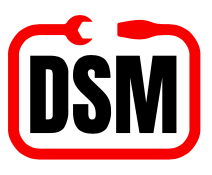
DSM Online Support
Support Master
Welcome to DSM Online
How can I help you today
How can we assist you? please let us know the support you need from DSM Online

In the fascinating world of DIY electronics, precise motion control is often the key to bringing your creations to life. Whether you're building a miniature robot, an automated camera slider, or a custom 3D printer accessory, you'll inevitably encounter stepper motors. These unique motors allow for exact, incremental movements, making them invaluable for positioning tasks. However, directly connecting a stepper motor to a microcontroller like an Arduino or Raspberry Pi is a recipe for disappointment – and potentially damaged pins! This is where the unsung hero, the Stepper Motor Driver Module ULN2003, steps in.
Compact, affordable, and incredibly user-friendly, the ULN2003 driver module has become a staple for hobbyists. Let's explore why this little board is so crucial for your motion control projects.
Unlike conventional DC motors that spin continuously, a stepper motor moves in discrete, precise steps. It has multiple coils (or "phases") that need to be energized in a specific sequence to make the motor rotate. This controlled movement allows for highly accurate positioning without the need for feedback sensors in many applications.
The challenge is that microcontrollers, while brilliant at sending digital signals, cannot supply the higher current required to energize a stepper motor's coils. Attempting to do so directly would overwhelm the microcontroller's pins, potentially causing permanent damage. Furthermore, the microcontroller needs to manage the complex sequence of energizing the coils to make the motor spin in a desired direction and number of steps.
This is precisely where a stepper motor driver comes into play. It acts as an intermediary, taking low-current control signals from your microcontroller and translating them into the higher-current pulses and correct sequencing needed to power the stepper motor's coils.
The heart of the Stepper Motor Driver Module ULN2003 is the ULN2003 IC, a Darlington array chip. In simple terms, a Darlington array is a collection of transistors (specifically, seven Darlington pairs) designed to amplify current. It can take a small input current from your microcontroller and switch a much larger current to the motor coils.
The beauty of the ULN2003 module is that it integrates this powerful IC onto a small, user-friendly Printed Circuit Board (PCB), making it incredibly easy to connect:
Integrated ULN2003 IC: All the necessary current amplification is handled by this single chip.
Convenient Connectors: The module typically features easy plug-in terminals for a 5V DC stepper motor (often the popular 28BYJ-48 unipolar stepper motor), along with clearly labeled pins (IN1-IN4) to connect directly to your microcontroller's digital output pins. It also has dedicated power input for the motor.
Indicator LEDs: A fantastic feature for beginners, the module includes four LEDs, one for each input. These illuminate as the corresponding motor coil is energized, providing invaluable visual feedback during programming and troubleshooting. You can literally watch the sequence as your motor steps!
Compact Design: Its small footprint means it won't take up much space in your projects.
This module simplifies stepper motor control dramatically, abstracting away the complexities of current amplification and sequencing.
For hobbyists and those starting with motor control, the ULN2003 module offers compelling advantages:
Simplicity and Ease of Use: Its straightforward wiring and clear pinouts make it incredibly simple to integrate into projects with microcontrollers like Arduino. No complex external components are required.
Cost-Effectiveness: It's one of the most affordable stepper motor driver solutions available, making it ideal for budget-conscious projects, learning kits, and prototyping.
Adequate Current Handling: While not for heavy-duty motors, it's perfectly capable of driving common small 5V DC unipolar stepper motors like the 28BYJ-48, which are widely used in hobby applications.
Visual Feedback: The integrated LEDs are a huge benefit for learning and debugging. You can visually confirm if your microcontroller is sending the correct sequence of signals to the driver.
Microcontroller Protection: By acting as a buffer, the ULN2003 protects your microcontroller from the higher currents and potential back-EMF (electromotive force) generated by the motor.
While excellent for many tasks, the ULN2003 driver module does have its limitations:
Current Limit: It's designed for low-power stepper motors. It cannot drive larger, higher-current stepper motors found in applications like industrial automation or large 3D printers.
Speed Limitations: Due to its simple switching method, the ULN2003 generally operates at lower speeds compared to more advanced drivers.
No Micro stepping: The ULN2003 typically drives unipolar stepper motors in full-step or half-step modes. This means less smooth motion and potentially more vibration compared to advanced drivers that offer micro-stepping (dividing each full step into smaller increments).
Heat Generation: For continuous or higher current operation, the ULN2003 IC can get warm, though usually not excessively so for its intended small motor applications.
The ULN2003 is perfect for projects requiring simple, precise, low-torque positioning:
Small Robotics: Controlling small robot arms or simple mobile robot movement.
Automated Systems: Opening/closing small curtains or blinds, controlling a simple camera pan/tilt mechanism.
Clock Mechanisms: Driving the hands of a custom digital-analog clock.
Valve Control: Opening or closing small valves in fluidic systems.
Educational Kits: A core component in many starter kits for learning about motors and microcontrollers.
The Stepper Motor Driver Module ULN2003 stands as a fundamental component for anyone delving into the world of motion control with stepper motors. Its simplicity, affordability, and beginner-friendly features make it an ideal starting point for countless DIY electronics and robotics projects. While it has limitations for heavy-duty applications, for small, precise movements, it's an invaluable tool.